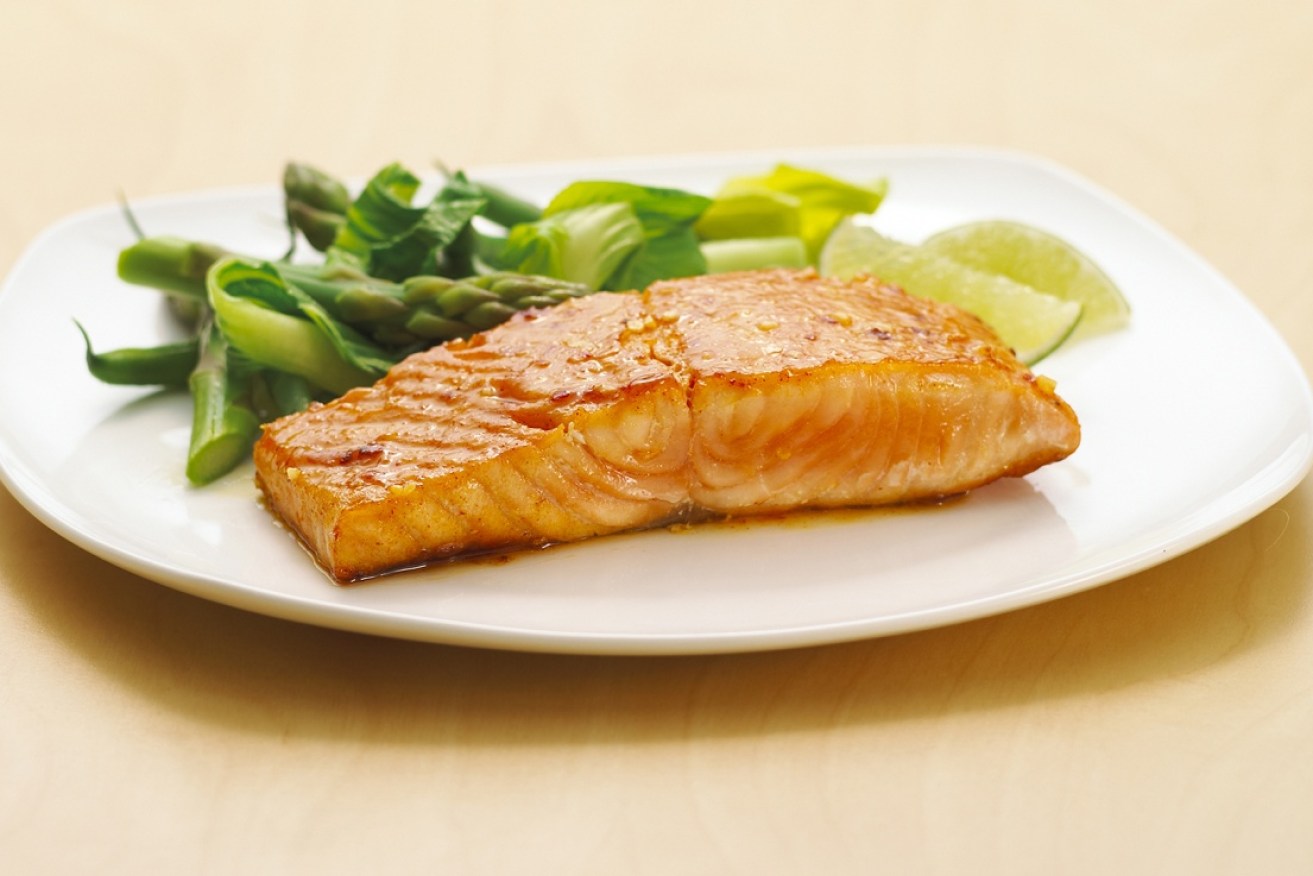The get smart diet: seven foods for brain health


A clean, simple fish dinner is ideal the night before an exam. Photo: Tassal Salmon
As school and university exams roll around and offices go into overdrive ahead of the silly season, your brain may be feeling the strain.
While studying and working can leave you feeling mentally depleted, it is possible to fuel your work with a diet that feeds the mind. Adding the following foods to your daily diet will give your brain enough of a boost to carry you over the line.

A clean, simple fish dinner is ideal the night before an exam. Photo: Tassal Salmon
Fish
What: Ocean trout, Atlantic salmon, mullet, mackerel, sardines, anchovies, herrings and sustainable tuna (in olive oil, not brine).
Why: Fish, particularly oily varieties, are a big source of omega-3 fatty acids.
“It’s all about brain cells signaling and nerve cells functioning,” explains Professor Alexandra McManus, director of Curtin University’s Centre of Excellence for Science, Seafood and Health.
“Those are the two key things that omega-3s provides for us – we don’t produce enough omega-3s in our bodies so we need to ingest them in our diet.”
If you have a something intellectually challenging coming up, Professor McManus advises eating oily fish the night before and the day of, if possible.

Most seafood has brain benefits. Photo: Curtin University
Seafood
What: Mussels, oysters and gummy shark.
Why: Seafood, particularly molluscs, is also high in omega-3s.
What’s more, it’s also a great source of protein.
“The small bronze whalers and gummy sharks are really high in lean proteins which are the building blocks of our body,” Professor McManus says.
Herbs
What: Sage, basil and rosemary.
Why: “Believe it or not, Rosemary is a brain stimulant,” Professor McManus says.
Nutritionist Alexandra Middleton concurs: “Rosemary is really good for memory.”
Use it to add flavor to your meals or keep a bunch nearby when studying so the smell infuses your study space.
Sage also boosts memory, while basil can increase your concentration.

Green leafy vegetables in any form are great for your mental functioning. Photo: Shutterstock
Colourful vegetables
What: Spinach, kale, cabbage, tomato, broccoli, carrot, sprouts, swedes and capsicum.
Why: “For brain health you should be eating anti-inflammatory foods or anything that’s not acidic,” Ms Middleton says.
“The best example of anti-inflammatory foods are vegetables.”
Before you load up, apply the colour test and look for vegetables that look like the rainbow.
“Green leafy vegetables are really important but also the vegetables like sprouts, kale, cabbage and swedes,” Professor McManus says.
If you’re confused about what vegies are boosters and what aren’t, Ms Middleton says there’s just one simple rule: “If it’s white, just generally don’t eat it.”
Spices
What: Turmeric and saffron.
Why: “All the big vitamin companies are creating turmeric supplements,” Ms Middleton says.
Taking a turmeric supplement can be helpful, but don’t disregard the entire plant.
“Turmeric as a whole plant has a lot of phytochemicals that have other beneficial effects on the brain – buy the entire turmeric root from the grocer,” Ms Middleton advises.
Research has also suggested that saffron has anti-depressant properties, with the potential to regulate serotonin levels in the brain and increase your positivity and energy.

Nuts and seeds are great snacks for brain boosts. Photo: Shutterstock
Nuts and seeds
What: Almonds, walnuts, brazil nuts, linseeds, pepitas and pumpkin seeds.
Why: “Pumpkin seeds are one of the highest natural sources of zinc,” Ms Middleton says.
Zinc is a mineral that can beneficial to cognitive stability and memory formation.
Nuts contain vitamin E, which battles cognitive decline, and can also battle heart disease.
Berries
What: Any berries, but particularly blueberries.
Why: Rich in antioxidants, berries improve concentration and memory.
“They’re a fantastic boost,” Professor McManus says.
Blackcurrants and strawberries are both big sources of vitamin C, which can improve mental agility.
In particular, eating blueberries within five hours of an important exam or meeting can improve your mental performance.








